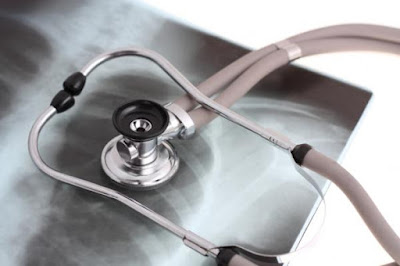The pneumonia or pneumonia is an inflammatory disease caused by germs and characterized by fever, difficulty breathing, severe coughing, etc. The treatment should be early and specific to the agent that caused, in order to relieve symptoms and speed up the healing process. Thus, you should visit your doctor immediately and follow the advice that we explain here about how to cure pneumonia.
1. First, it is important to know the symptoms of pneumonia or pneumonia -both names refer to the same respiratoria- disease so trigger alerts if they occur. So, you should pay attention to:
- Cough
- Difficulty breathing
- High fever
- Chills and cold sweats
- Dark Mucous
- Chest pain aggravated by cough
- Headache and malaise
- Muscle pain
Above all, go to your doctor as soon as you detect any of these symptoms.
2. Also, you should know that there are different types of pneumonias depending on which has been the pathogen that caused the infection and, therefore, treatment will vary. Among the most common causes are bacteria: Streptococcus pneumoniae, Staphylococcus aureus, Haemophilus influenzae and Legionella , and can also result from a viral infection or fungal.
It will also be essential to take into account other factors such as age of the patient, the severity of the infection and symptoms, associated risk factors, environmental factors and geographical location ... Thus, it is determined whether the person who has contracted pneumonia Requires hospitalization and which treatment is most appropriate.
3. The pulmonologist or specialist physician must examine the patient thoroughly and carry out relevant evidence, including usually include a chest x - ray , to thereby make the proper diagnosis. Occasionally, blood, urine and / or sputum cultures may also be needed to try to find out what germ has triggered pneumonia.
4. In most cases, the physician prescribed as a treatment for pneumonia antibiotic medication that helps fight infection, according to what has been the germ causing this disease. However, there must always be a medical prescription in order to initiate a pharmacological treatment and, in the case of antibiotics, it will be essential not to cease it even though the symptoms have remitted.
5. Likewise, people with pneumonia should drink plenty of water and also can ingest other liquids such as teas or fruit juices to keep your body well hydrated. Unless the doctor recommends otherwise, at least two liters of fluids per day will be required.
6. Save bed rest also speed up the healing process of pneumonia, and will be vital ventilate the room frequently to prevent contagion, yet always avoiding air currents so that the patient / not cool. Physical exertion should not be undertaken, as breathing difficulties would be increased and the symptoms of pneumonia would become more acute.
It can also be very useful to buy a humidifier to ensure the correct level of humidity in the air and prevent it from getting too dry, a fact that also hinder the breathing of the person in question.
7. It should be noted that there are some natural remedies that can be done at home to help relieve symptoms and ailments that cause pneumonia. A good example is the steam with hot water and some aromatic plant such as eucalyptus, as they will help to release mucus from the airways.
This article is purely informative, we have no power to prescribe any medical treatment or make any kind of diagnosis. We invite you to go to a doctor in the case of presenting any type of condition or discomfort.
Tips
- Antibiotics must be prescribed by a physician and according to the germ.
- Pneumonias should be treated properly to avoid complications and always follow the advice of your doctor.





